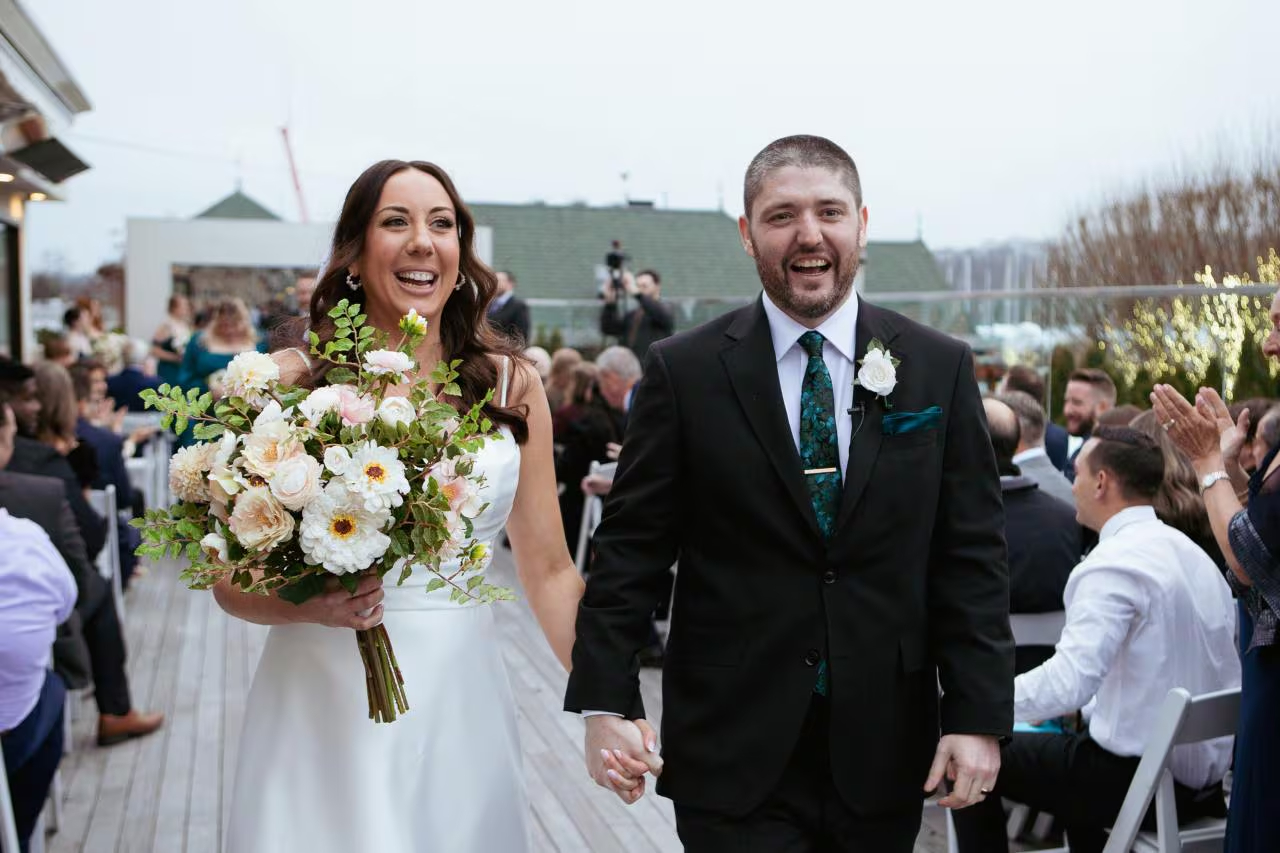For Ryan and Amanda Dona in Long Island, New York, their February wedding was a testament to their financial stability.
"It felt like a capstone to a chaotic few years," said Amanda, 32, who has a master's degree in marketing and market research. Her 33-year-old husband is an insurance appraiser. Before their wedding, they purchased a house in Long Island and advanced in their careers.
 |
Ryan and Amanda Dona in Long Island, New York at their February wedding. Photo: WSJ |
Ryan and Amanda Dona in Long Island, New York at their February wedding. Photo: WSJ
Researchers call this trend the "capstone model," where couples establish their careers and finances before marriage. This replaces the previous "cornerstone model," where young people typically married in their early 20s and built their careers and assets together.
"Marriage in America now is about achieving a certain level of educational and career success before exchanging rings," said Professor Brad Wilcox of the University of Virginia.
This shift is believed to be a primary reason why the average age of first marriage is rising, and why many are choosing not to marry at all. The median age for first marriage in the US in 2024 was 30 for men and 29 for women, a significant increase from 28 and 26 in 2008.
The case of Taylor Swift and Travis Kelce, both in their 30s and only getting engaged after achieving career success, is seen as a prime example of this trend.
The capstone model also sets higher expectations. "If a house with a white picket fence and an outdoor wedding is out of reach, you might think marriage isn't for you," Wilcox said.
From 2008 to 2023, the first-marriage rate in the US decreased by 9%, to 60 per 1,000 single people. Those with college degrees or higher incomes were less affected, while the marriage rate among lower-income groups (representing two-thirds of the population) dropped sharply.
"Marriage has become a symbol of financial security and status," said Krista Westrick-Payne, deputy director of the National Center for Family & Marriage Research. "People wait until they have a degree, a stable job, a house, and a partner who meets all those criteria before getting married."
In reality, many young people admit they are not financially prepared. Eugene Hopper, 34, who lives in Ohio, joined the military to pay for college and delivered pizzas, said he always felt behind. Although now established in his career, Hopper finds it difficult to envision married life after years of living alone.
Similarly, Catherine Marshall, 32, of New Jersey, said that the older she gets, the harder it is to contemplate cohabitation. Dating has also become discouraging as many men earn less, becoming a burden rather than a support.
Experts suggest that the widening economic gap between men and women makes the "capstone model" difficult to achieve. Women today are more educated and earn well, while many men struggle. "In the past, simply being the breadwinner gave men an advantage. Now that advantage is gone," said Richard Reeves of the American Institute for Boys and Men.
In addition to education, family wealth also determines the likelihood of marriage. A Goldman Sachs study found that in 2019, 59% of 37-year-old Americans whose parents were in the highest income group were married, compared to only 30% in the lowest income group.
According to economist Melissa Kearney, marriage among the wealthy reinforces asset accumulation and widens the income gap. "Highly educated women today have more opportunities and higher incomes. And the men they choose to marry are still very successful," she said.
Bao Nhien (WSJ)












